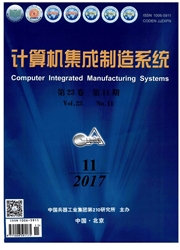

 中文摘要:
中文摘要:
为了运用实验的方式验证动态逆向选择下理论模型的有效性,从理论模型出发,分析了动态供应链的激励契约及其数值结果,并通过设计实验验证了理论模型的有效性。实验数据与理论模型的预测结果一致:销售商会选择在第二期给制造商一定的声誉补偿,以缓解棘轮效应的不利影响,从而双方的收益均有提高;制造商则会考虑声誉补偿的大小来显示生产成本,声誉补偿越小其显示成本越大。通过实验支持了理论假说"第二期的声誉补偿可以缓解棘轮效应的不利影响,提高供应链的效率"。
 英文摘要:
英文摘要:
To verify the effectiveness of theoretical model with dynamic incentive contract,the supply chain's dynamics incentive contract and its numerical results were analyzed,and the theoretical validity through the design of experiments was verified.Experimental data was consistent with theoretical models prediction.In the second period,the retailer would give the manufacturer a certain compensation of reputation to alleviate the adverse effects of ratchet effect,and both profits were increased;the manufacturer would show the cost of production by considering the size of compensation,the smaller the compensation of reputation,the greater the cost of its display.The theoretical hypothesis of compensation can ease the ratchet effect and improve supply chain efficiency was supported by experiments.
 同期刊论文项目
同期刊论文项目
 同项目期刊论文
同项目期刊论文
 期刊信息
期刊信息
